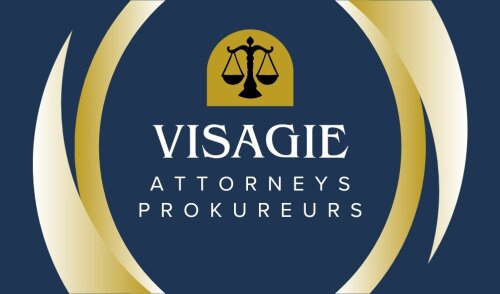Best Creditor Lawyers in Rustenburg
Share your needs with us, get contacted by law firms.
Free. Takes 2 min.
List of the best lawyers in Rustenburg, South Africa
About Creditor Law in Rustenburg, South Africa
Creditor law in Rustenburg, South Africa, governs the interactions between creditors and debtors, ensuring a balanced approach to debt collection and financial liability. The legal framework establishes the rights and obligations of both parties, defending creditors' rights to recover debts while ensuring debtors are treated fairly. Given Rustenburg's status as a mining hub, creditor issues can also intersect with large-scale commercial agreements and business credit arrangements.
Why You May Need a Lawyer
There are several situations where individuals or businesses in Rustenburg may require legal assistance regarding creditor matters. These include recovering unpaid debts, negotiating payment terms with creditors, resolving disputes between creditors and debtors, and understanding or contesting legal notices related to debt collection. Businesses might also need legal counsel on creditor issues related to insolvency or liquidation processes.
Local Laws Overview
In Rustenburg, creditor law is influenced by national legislation such as the National Credit Act, which governs fair credit practices and agreements, and the Magistrates' Courts Act, which includes provisions for debt enforcement. The Prescription Act sets forth the time limits within which creditors can claim debts, generally providing for a prescription period of three years for most debt claims. Additionally, the Insolvency Act may apply in cases of bankruptcy or liquidation. Understanding these laws helps both creditors and debtors navigate their legal rights and responsibilities.
Frequently Asked Questions
What is the National Credit Act?
The National Credit Act is legislation designed to promote a fair and non-discriminatory marketplace for access to consumer credit and to regulate the credit industry, protecting consumers from unfair lending practices.
How long do creditors have to collect a debt due in Rustenburg?
Under the Prescription Act, most debts prescribe after three years, meaning creditors have this time to collect a debt before it becomes unenforceable. However, some exceptions may apply, requiring expert legal advice.
What can I do if I've received a summons for debt payment?
If you have received a summons, it is crucial to act swiftly by seeking legal advice. A lawyer can help you respond appropriately and negotiate any possible settlements or legal defenses.
Can creditors in Rustenburg garnish my wages?
Creditors must first obtain a court order to garnish wages. Once an order is granted, a portion of your salary can be redirected to cover an unpaid debt.
What rights do I have if I can't pay my debt?
Several options might be available, including negotiating new terms with creditors or applying for debt review-a process that can offer relief by restructuring debts in compliance with the National Credit Act.
Do I need to attend court if I have been sued as a debtor?
If you're being sued, attendance in court might be necessary. It is advisable to engage with a lawyer who can attend on your behalf or help represent your interests.
What happens to unsecured debts during liquidation?
Unsecured creditors are paid from the remaining assets of a liquidated entity, but they have lower priority compared to secured creditors, meaning they might not recover the total amount owed.
How can I verify the legitimacy of a debt collection agency?
Ensure the agency is registered with the Council for Debt Collectors, which enforces standards and ethical practices for debt collection in South Africa.
What should I do if I suspect a creditor is acting unlawfully?
Consulting with a lawyer is imperative to understand your rights and take appropriate legal action if necessary. You can also report the creditor to relevant authorities.
Can a debt be too old to collect?
Yes, once the prescribed period has expired (typically three years for most consumer debts), a creditor cannot legally enforce the debt.
Additional Resources
For additional assistance, consider reaching out to the National Credit Regulator, the Council for Debt Collectors, and local legal aid offices. These bodies can offer guidance or direct you to further resources catered to creditor issues.
Next Steps
If you require legal assistance with creditor matters, arrange a consultation with an attorney who specializes in this area of law. They can provide personalized advice based on your circumstances, help you understand your options, and represent you in any necessary legal proceedings. It's important to gather all relevant documents and details about your financial situation before your meeting to ensure a comprehensive discussion.
Lawzana helps you find the best lawyers and law firms in Rustenburg through a curated and pre-screened list of qualified legal professionals. Our platform offers rankings and detailed profiles of attorneys and law firms, allowing you to compare based on practice areas, including Creditor, experience, and client feedback.
Each profile includes a description of the firm's areas of practice, client reviews, team members and partners, year of establishment, spoken languages, office locations, contact information, social media presence, and any published articles or resources. Most firms on our platform speak English and are experienced in both local and international legal matters.
Get a quote from top-rated law firms in Rustenburg, South Africa — quickly, securely, and without unnecessary hassle.
Disclaimer:
The information provided on this page is for general informational purposes only and does not constitute legal advice. While we strive to ensure the accuracy and relevance of the content, legal information may change over time, and interpretations of the law can vary. You should always consult with a qualified legal professional for advice specific to your situation.
We disclaim all liability for actions taken or not taken based on the content of this page. If you believe any information is incorrect or outdated, please contact us, and we will review and update it where appropriate.











